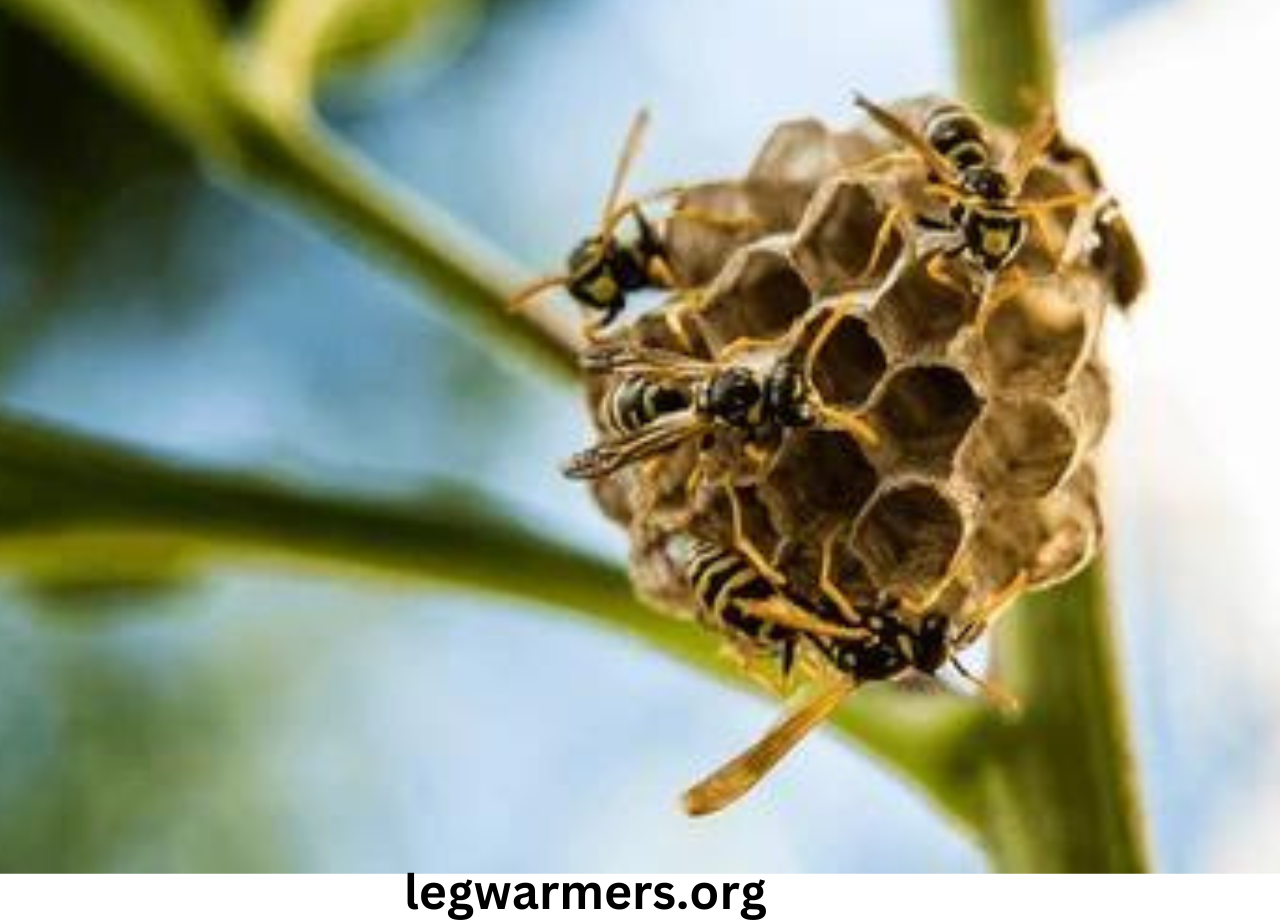Introduction
Wasps can be intimidating little creatures, especially when you spot a wasp nest hanging from your porch or hidden in the bushes. But understanding these insects and their nests can help demystify them and keep you safer in your own backyard. Wasps play a crucial role in our ecosystem, and while their nests can pose some risks, they’re also marvels of natural engineering. Let’s dive into the world of wasp nests and learn everything you need to know to keep your home safe and your mind at ease.
Table of Contents
What is a Wasp Nest?
A wasp nest is a structure built by female wasps, known as queens, to lay eggs and house their colonies. The nests are made from wood fibers chewed into a pulp, creating a papery material that forms the intricate layers of the nest. Different types of wasps construct nests in various shapes and sizes, each suited to their species’ needs.
Types of Wasp Nests
Paper Wasp Nests
Paper wasp nests are recognizable by their open, umbrella-shaped structure. These nests are often found hanging under eaves, porch ceilings, or tree branches. The cells of the nest are visible from below, giving it a honeycomb appearance. Paper wasps are less aggressive compared to other species, but their nests can still pose a threat if they are disturbed.
Yellowjacket Nests
Yellowjackets are known for their aggressive nature and their enclosed nests, which can be found underground or in hidden cavities such as wall voids or attics. Their nests are built with a similar papery material but are often covered and harder to spot. The enclosed design helps protect the nest from predators and the elements.
Hornet Nests
Hornet nests are large, rounded structures that can hang from trees, shrubs, or building eaves. The exterior is smooth and gray, often resembling a large paper lantern. Hornets fiercely guard their nests and may act aggressively if they sense danger.
How Wasps Build Their Nests
Wasps use their powerful mandibles to scrape wood fibers from trees and fences. These fibers are mixed with their saliva to create a paper-like substance. The queen starts the nest-building process by constructing a small structure to lay her first batch of eggs. As these eggs hatch and develop into worker wasps, they take over the task of expanding the nest.
Where Do Wasps Build Their Nests?
Wasps are quite adaptable when it comes to nest locations. Typical places for outdoor nests are trees, bushes, beneath eaves, and inside sheds. Indoors, they may choose attics, wall voids, or other secluded spaces. The choice of location depends on the availability of shelter and food sources.
Why Do Wasps Build Nests?
The primary purpose of a wasp nest is to house the colony and protect the queen and her eggs. The nest serves as a nursery for the young and a home for the workers. It also provides a safe place for the colony to grow and thrive, especially during the warmer months.
Identifying a Wasp Nest
To find a wasp nest, you need to look for particular indicators. A wasp nest typically has a papery texture and may have a honeycomb-like appearance. If you notice a lot of wasp activity around a particular area, there’s a good chance a nest is nearby. Exercise caution when nearing, as disturbing a nest might incite the wasps.
Dangers of Wasp Nests
Wasp nests can pose several dangers, especially to those allergic to wasp stings. Wasps can sting multiple times, and their stings are painful and can lead to severe allergic reactions. Pets and children are particularly vulnerable, and nests located in high-traffic areas can increase the risk of stings.
When to Be Concerned About a Wasp Nest
Different wasp nests present varying degrees of danger. Paper wasps, for instance, are less aggressive than yellowjackets or hornets. However, if a nest is located near a home entryway, playground, or other high-traffic area, it’s worth considering removal. Seasonal changes can also impact wasp behavior, with nests becoming more active in late summer and early fall.
Safe Methods for Handling a Wasp Nest
For small nests that are in out-of-the-way locations, it might be safe to remove them using DIY methods such as spraying them with soapy water or using a commercial wasp spray. However, for larger nests or nests in tricky locations, it’s best to call a professional exterminator. Never attempt to remove a nest if you are allergic to wasp stings.
Preventing Wasp Nests Around Your Home
To prevent wasps from building nests around your home, keep outdoor garbage tightly sealed, eliminate standing water, and regularly inspect your property for early signs of nest-building. Wasps are also deterred by strong smells like peppermint or eucalyptus, so using these as natural repellents can help.
Natural Remedies to Repel Wasps
Several natural remedies can help keep wasps at bay. Planting herbs like mint, citronella, and thyme around your home can deter wasps. Additionally, creating a homemade insect repellent spray with essential oils can be effective. Simply mix water with a few drops of essential oils like peppermint, clove, or lemongrass, and spray it around potential nesting sites.
Common Myths About Wasps and Their Nests
There are many myths surrounding wasps and their nests. Contrary to popular belief, wasps are not always aggressive and only attack when threatened. Another myth is that destroying a nest will eliminate all wasps; however, it’s possible for wasps to rebuild or establish a new nest nearby if the queen survives.
Ecological Benefits of Wasps
While wasps might seem like nothing more than pests, they actually play a significant role in our ecosystem. Wasps are natural predators of many other pests, such as caterpillars and aphids, which makes them beneficial for gardens. They also contribute to pollination, albeit less efficiently than bees.
Conclusion
By learning about wasps and their nests, you can handle them in a safer and more effective manner. While wasp nests can pose risks, especially to those with allergies, they also have their place in the ecosystem. By taking proper precautions and knowing when to call in professionals, you can coexist with these insects without unnecessary fear.
FAQs
What steps should I take if I discover a wasp nest close to my house?
It’s best to assess the location and size of the nest. If it’s small and out of the way, you can use DIY methods. For larger nests or those in dangerous spots, call a professional.
Are all wasps aggressive?
No, not all wasps are aggressive. Some species, like paper wasps, are generally less aggressive unless threatened.
Can I use natural remedies to keep wasps away?
Natural solutions such as peppermint oil, citronella, and various essential oils are effective in deterring wasps.
How can I prevent wasps from nesting around my house?
Regularly check your property, seal garbage tightly, eliminate standing water, and use natural repellents.
What happens if I destroy a wasp nest?
Destroying a nest might not eliminate all wasps. If the queen manages to survive, it’s possible that wasps could start rebuilding in the vicinity.
You Can See Latest Updates On: Leg Warmers



